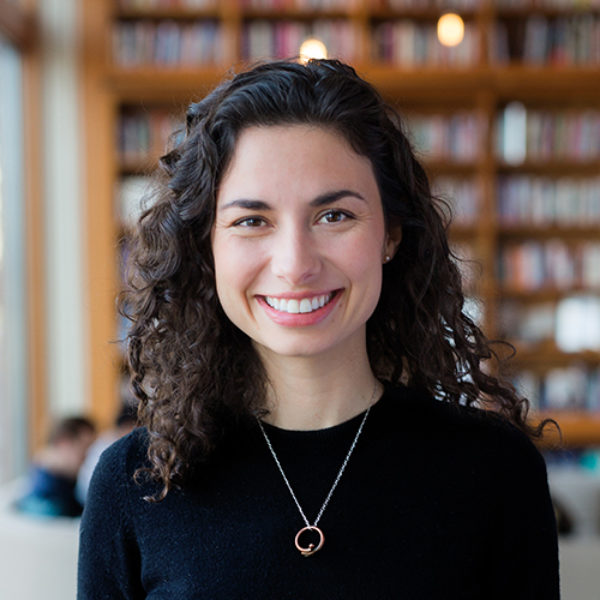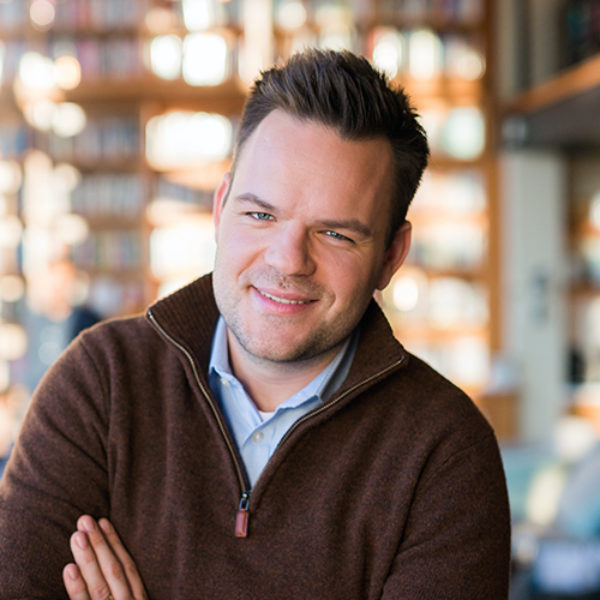How We Gather (Part 4): Becoming Our Aspirational Selves
Over the last three years, I’ve had the privilege of getting to know communities all over America that are changing people’s lives. As fellows at Harvard Divinity School and On Being, Casper ter Kuile and I are mapping a landscape of life-giving organizations that are emerging even as religious affiliation declines. Across the secular/sacred divide, we’ve noticed six themes come up in these places again and again: community, personal transformation, social transformation, accountability, creativity, and purpose-finding. Our next six columns delve into these themes one by one.
Purpose-finding feels at once the most pressing and the most difficult to capture. In my research I use this definition: clarifying, articulating, and acting on one’s personal mission in life. While this may suggest something to do with vocation — and, indeed, is often reflected in the choice of a job — it’s bigger than that. To find purpose in community is to discover what you are for. It is to name an internal sense of what you uniquely give to this world, and to be amongst others who inspire you to give it fully, just as you so inspire them.
In SCUL, formerly known as the Subversive Choppers Urban Legion, they call this being a superhero version of yourself. An unlikely destination for purpose-finding, SCUL is a mutant bicycle gang, otherwise known as a sci-fi fueled, anti-elite, highly organized battalion of funk. Operating out of Artisan’s Asylum, the fabulous makerspace down the street from me, SCUL sends starpilots out on nighttime missions throughout the greater Boston area, riding as a raucous and musical fleet astride starships made of bike parts. Since its launch by Admiral Skunk in 1996, SCUL has developed a local reputation for its weekly night rides, characterized by positivity, high-fives, and the sounds of “Chopper Groove.”
But for its pilots, the fleet is more than a place to ride. It is a place to be a superhero.
My upstairs neighbor, Mike Thomas, joined SCUL when he moved to Somerville. Previously, he had been working a corporate job trying to pay off college loans. The work felt to him “like it was designed to break people’s spirits or kill them with kindness.” Coddled with free food yet starved for creative agency, Mike sought refuge outside of work through video games. His favorite, dating to childhood, was a massively multiplayer online role-playing game (MMORPG) called Guild Wars, in which he created a character named Tartheis. Tartheis was a ranger: bearded, agile, resilient, and usually found running around the mountains with a pet wolf. His profession in the game balanced intelligence and strength.
By 2014, Mike prefered the “false reality” of the game to the reality of his daily existence. The dissonance became so pronounced that it led to a realization and a decision. “Why don’t I become this person?” he asked himself.
“Why don’t I become this alter ego that does archery and hikes and travels and meets interesting people? I had to at least try to become that person I wanted to be instead of just dwelling in the misery.”
So he did. He left his job, moved to Somerville, stopped playing the game, and tried to live it instead. Through real life decisions, he strove “to get in the habit of becoming that person inside.” But it wasn’t until joining SCUL that he got to claim the name.
The SCUL fleet requires that you choose a pilot name, which is the only name by which you’re known. Mike chose Tartheis. When asked what it’s like, he said,
“It feels great. It’s the first time I have people to call me by that name in real life — even if it’s in the context of riding bicycles in the middle of the night like we’re on a spaceship. I feel like everyone has a superhero version of themselves that walks in parallel with them. There are some people who try to become that person and some people who don’t. I decided to become a superhero.”
Whether it’s playa names at Burning Man or nicknames at Camp Grounded or fandom names at Comic-Con, people are finding places to announce and embody superhero identities. But while these places are real, they, like SCUL, are still — and intentionally — alternatives to everyday life. More and more, I find people yearning for permission to be superheroes in the harsh mundanity of their daily routines. How might such identities find a home in the real world? And if they did, how would the world change?
In 1906, the Catholic-born philosopher George Santayana wrote:
“Another world to live in — whether we expect ever to pass wholly into it or not — is what we mean by having a religion.”
In many Catholic contexts, the sacrament of Confirmation comes with a new name between your middle and last names, which belongs to a saint that you seek to imitate in your own life. You choose the name based on the specific virtues the saint exhibited and your sense of connection to these virtues. Once the name is imposed by a bishop during Confirmation, this saint is bonded with you spiritually, and in essence becomes your heavenly patron. The ritual thereby publicly and spiritually identifies the present self with a future self, tethering the real world to the world to come. In other words, the person you are inside is brought to light.
There is something sacred and imperative about naming who you are and living into who you could become. Taj Smith, a graduate of Harvard Divinity school, recounts how the imagined worlds of science fiction became a portal for naming his work as a Christian, transgender black man in the real world. When I asked him about choosing the name Taj, he said:
“It’s aspirational if anything. I want a name that will give me something to live up to. Taj means prince, or crown. It’s derived from the Sanskrit word for light. Once I started the transition, I committed to a life of evolution and self-growth and reflection. It made me ask myself a lot, What kind of man do I want to be?”
For Taj, asking “What am I for?” led to the challenging discovery that his unique gifts centered on thoughtful masculinity. The decision to transition was especially difficult because it meant entering into the heightened visibility of being a black man. (Or, as Taj puts it, “going from being invisible to hyper-visible and terrifying.”) But he decided it was imperative to follow his internal code of integrity, honor, and respect, or what he calls the Christlike code of being a good man by which he strives to live. All difficult decisions have subsequently been held to the same code. He says,
“Every time I am put in a hard position and I choose wisely, I feel like I am living up to my name.”
Imagined selves can be threatening to the status quo. They can also be tender to bring to light. And yet, I wonder, what if more of us activated our spiritual imaginations in this way? Went so far as adopt aspirational names and work to live up to them? Wouldn’t we co-create a different and better community — if not world — for those whose lives we touch?
How We Gather
»Part 1: The Theology of CrossFit
» Part 2: SoulCycle as Soul Sanctuary
» Part 3: The Dinner Party


Share your reflection